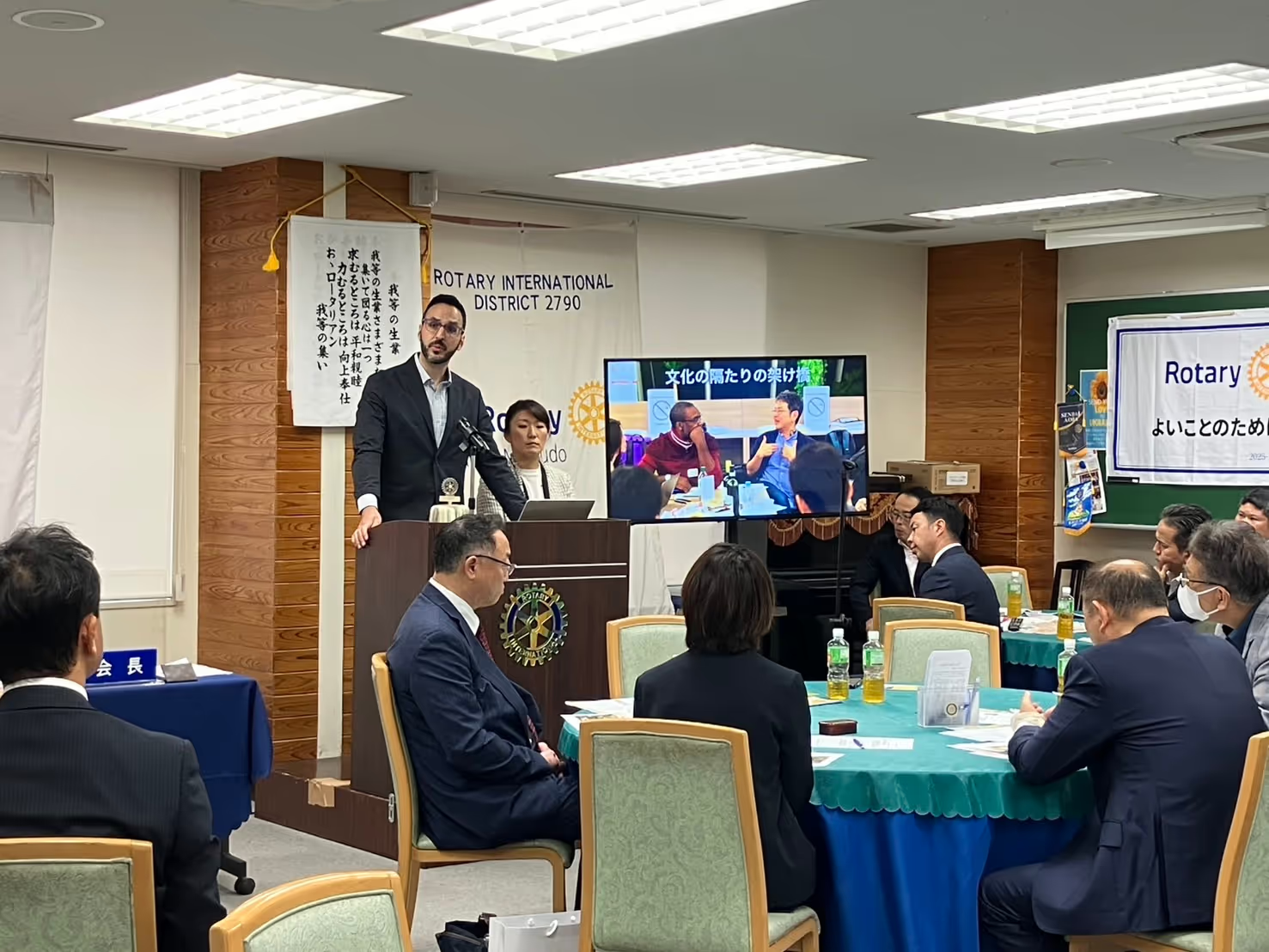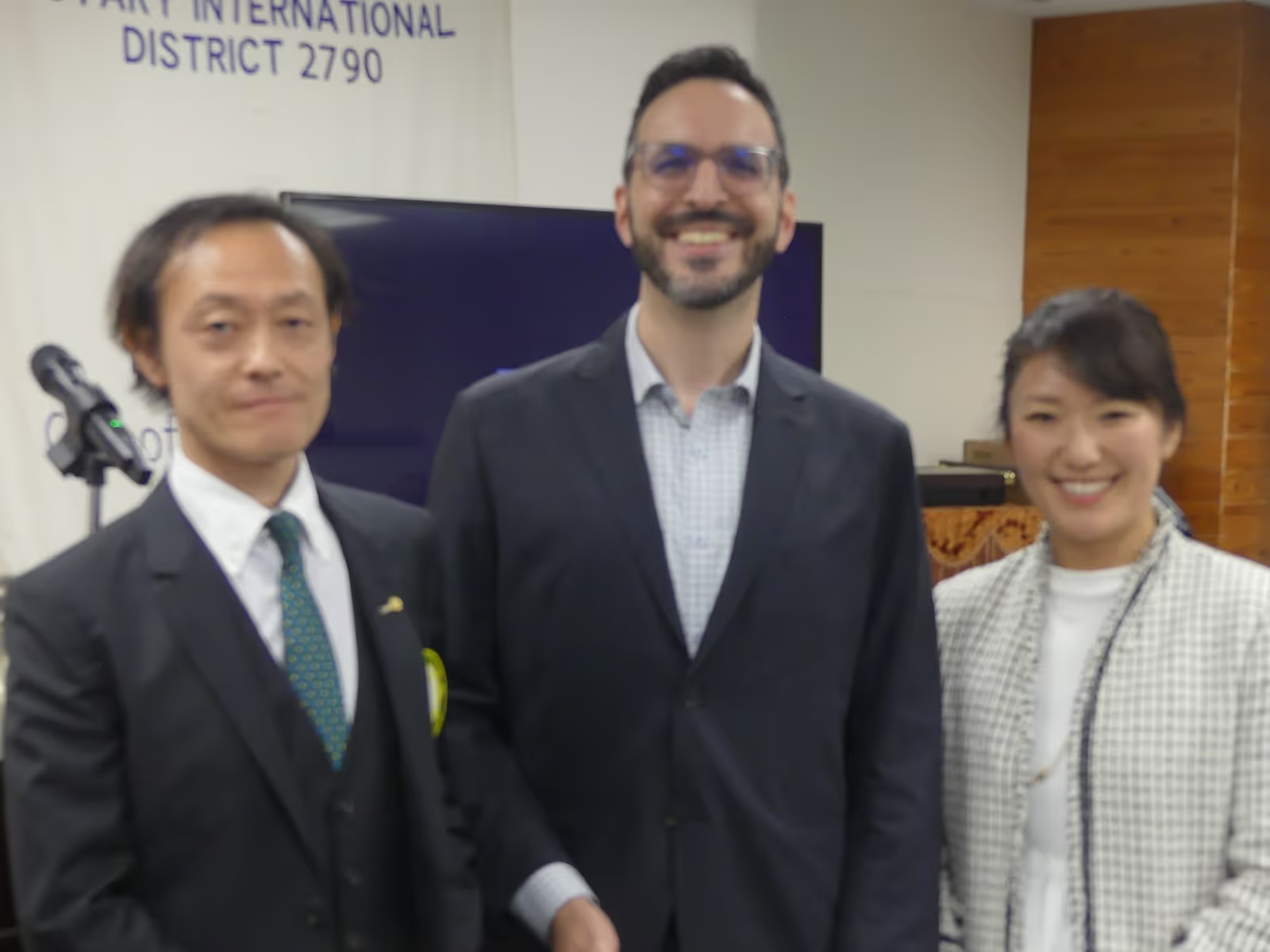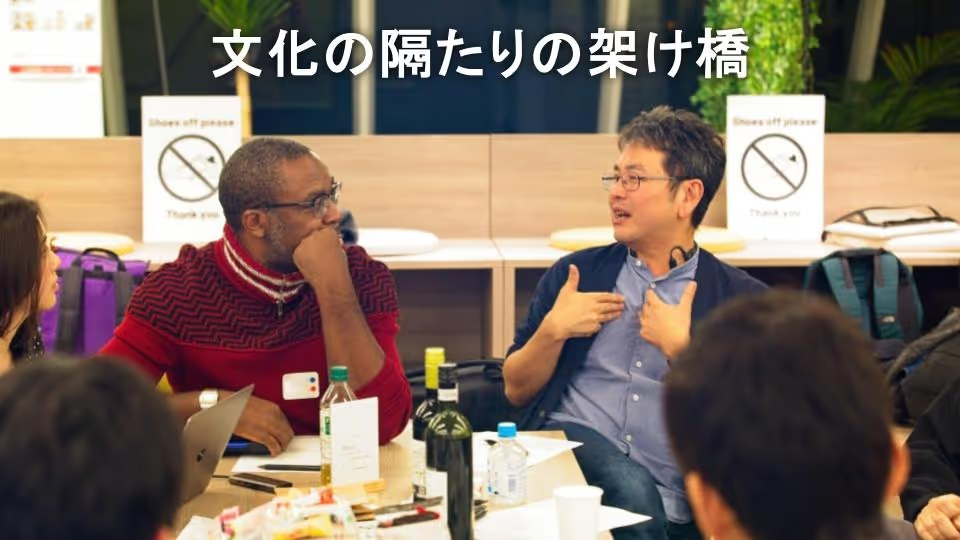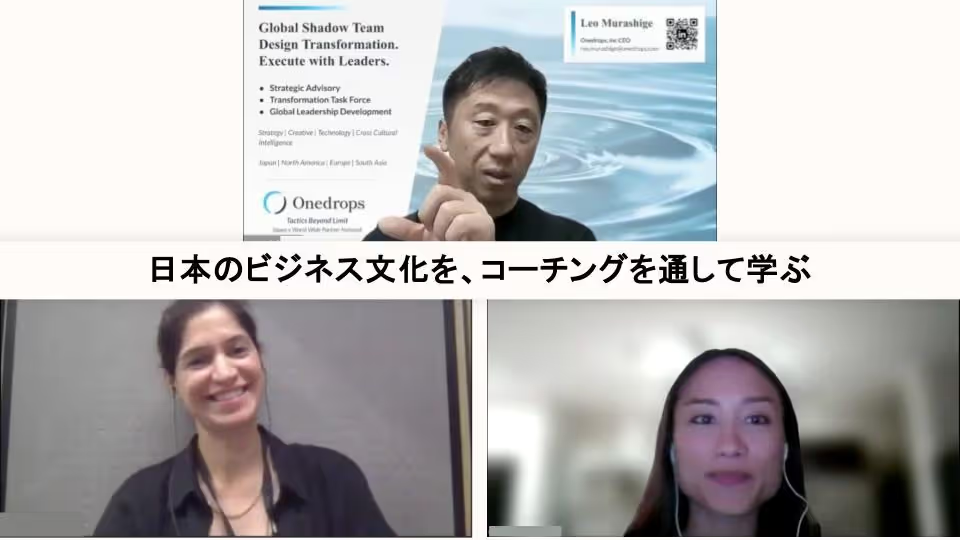
When two international founders with strong products kept losing sales deals in Japan, they thought their pricing was wrong. It wasn't. They were missing something more fundamental about the process of making business decisions in Japan.
On October 15, I was invited by the Rotary Club of Matsudo to share what I've learned about why talented founders struggle in Japan and what it takes to bridge Silicon Valley and Japanese business culture. My wife Eriko Tokiwa provided translation.

Many Rotary Club members lack experience working with tech startup founders, let alone international entrepreneurs. They range from bank managers to small business owners to professionals in various services. Below is an abridged transcript of the speech.
I'm Joe Baz, born in the US, now based in Matsudo with my family. Before moving to Japan in 2023, I ran a consulting business that generated nearly $1M annually. Today, I operate Musubi Tech, supporting tech startups in Japan to succeed globally.

Most businesses serve existing markets: accounting, legal services, and banking. Tech startups are different. They create inventions for *uncertain* markets. No one predicted the demand for Twitter or Instagram before they existed. These companies had to create their own markets.

How do you succeed when the market doesn't exist yet? You don't know. You *test*. One of Silicon Valley's critical advantages involves **rapid experimentation**. Build the simplest version possible, test with real customers, learn, adjust, repeat. When nobody knows the answer, someone has to experiment.

Tokyo has invested heavily in startups and is now ranked 10th globally (up from 15th). The momentum is real. But international founders often hit a wall.
Japanese business culture emphasizes relationship-building. American startup culture prioritizes rapid iteration. Neither is wrong. They evolved from different contexts. But when they meet without mutual understanding, problems emerge.

Two international founders in my community had strong products and compelling demos, but their sales conversations with Japanese corporations weren't converting as expected. After working with one of the coaches in the Musubi Tech network, they gained a critical insight: Japanese business decisions prioritize relationship-building alongside ROI calculations. Questions like 'Will this make your daily work easier? Could this decision create risk for your team?' This reframing helped them adjust their approach successfully.
Once they understood this, things changed. They didn't just learn sales techniques. They learned why relationships come before product.
Tech is critical to Japan's economic future. However, startups don't succeed solely due to government investment. They succeed by building real relationships with customers, partners, and the business community.
International founders often have a deep understanding of technology but struggle with the unwritten rules of Japanese business. Meanwhile, Japanese companies could benefit from understanding why startups move fast, pivot business models, and need different evaluation criteria.

We connect international founders with experienced coaches who help them navigate Japanese business culture, and we help both sides learn from each other.
If you're exploring partnerships with tech companies as an investor, customer, or service provider, I'm happy to share what I've learned. And if you know founders who could benefit from experienced business operators, I welcome the introduction.